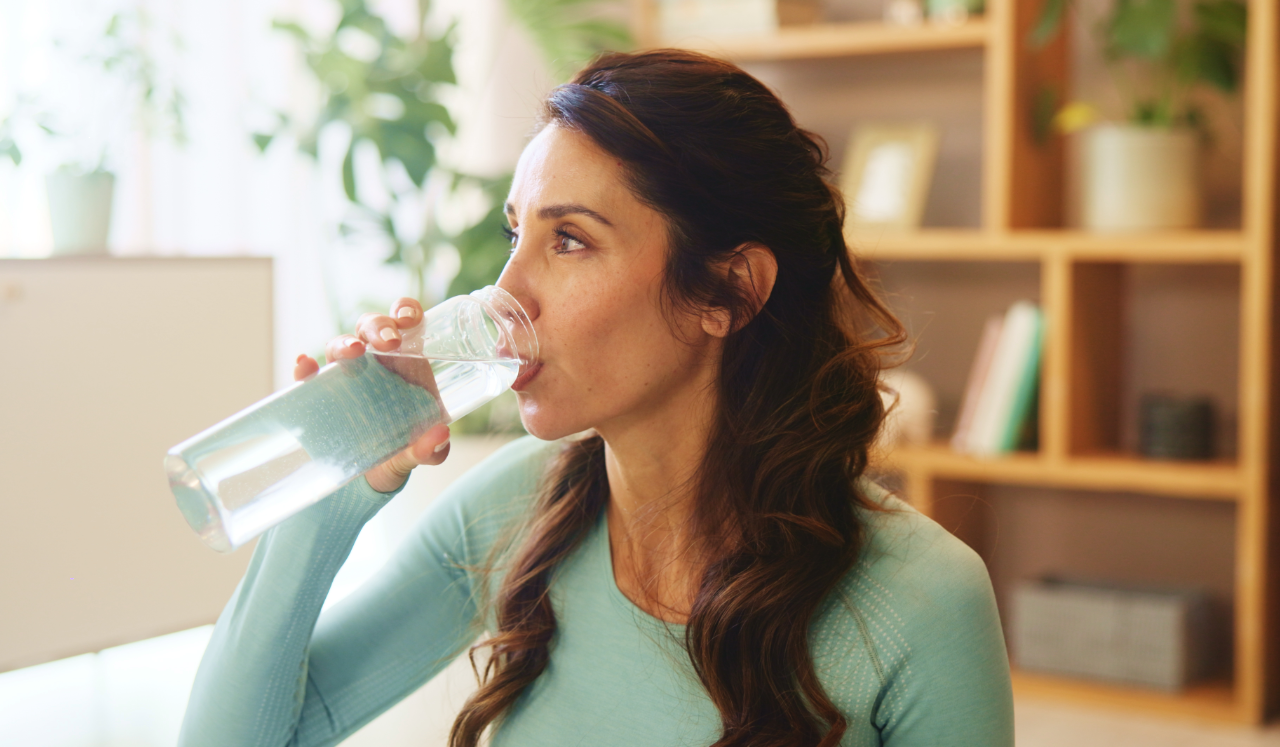When you engage in strenuous activity or when you start spending long hours outdoors, hydration becomes more important than ever. But water is only part of the equation. Your body also needs electrolytes, the charged minerals that help your cells, muscles and nerves function properly.
Sarah Sagullo, a registered dietitian and health coach with Memorial Hermann’s Workplace Wellness team, says electrolytes play a role in nearly every system in the body, noting that they are “essential for everyone, not just athletes.”
With many electrolyte drinks on the market targeting athletes specifically, this might come as a surprise. Athlete or not, it is important to be able to recognize when you have an electrolyte imbalance so you can be intentional about consuming these vital minerals. But first, let’s look at how exactly these electrolytes function in your body.
What Electrolytes Do and Recognizing an Imbalance
Electrolytes are minerals that have an electric charge, whose job it is to support a wide variety of different functions in your body. The most common electrolytes are sodium, potassium, calcium, magnesium, chloride and phosphate. Together, these minerals maintain your body’s fluid balance, help muscles contract and keep your heart rhythm steady—yet each one plays a distinct role:
- Sodium regulates fluid levels at the cellular level and supports nerve communication and muscle contractions.
- Potassium works with sodium to maintain blood pressure and heart health.
- Calcium both strengthens bones and teeth and controls heartbeat and nerve signals; note that you must have a source of vitamin D to properly absorb calcium.
- Magnesium supports muscle relaxation and plays a role in metabolism and mental health.
- Chloride maintains blood volume and fluid balance, often in tandem with sodium.
- Phosphate supports energy production and cell repair.
Sagullo is clear on this: These electrolytes are essential for everyone, not just professional or endurance athletes. “Everybody needs a good mix of these electrolytes so that their bodies can work properly.”
Even mild imbalances can cause noticeable symptoms. Sagullo says early signs may include fatigue, dehydration or difficulty concentrating. “You may also notice muscle cramps, especially during a distance event or if you are out in the heat for a long time,” she explains.
More serious imbalances can lead to irregular heartbeat, dizziness or confusion, which require medical attention.
Everyday Sources of Electrolytes
The good news is that most people can get enough electrolytes from food. “You can find them in many of the things you eat. You don’t necessarily need a sports drink or supplement if you’re engaging in simple day-to-day activities,” offers Sagullo.
Some of her go-to sources include the following:
- Sodium: almost all fruits and vegetables have trace amounts of sodium
- Potassium: bananas, oranges, sweet potatoes, coconuts and coconut water
- Magnesium: nuts, seeds, whole grains and dark chocolate
- Calcium: leafy greens, dairy, fortified cereals and fortified plant-based milk
- Phosphate: meat, poultry, fish, legumes (like beans, lentils and peas), milk and whole grains
To help with your fluids, Sagullo says the “juicier-sounding” fruits tend to be excellent hydrating choices. These foods provide both water and electrolytes without the added sugar or sodium often found in sports drinks—oranges, strawberries and cucumbers all come immediately to mind, but there are others if those don’t suit your tastes.
Do You Need an Electrolyte Drink?
For most healthy adults, plain water and a balanced diet are enough. But there are times when a supplement or electrolyte drink might help. “If you have been exercising for a long time or you are in a hot and humid climate like Houston, you may need to supplement,” Sagullo says. “This is especially true for people who sweat heavily, like soccer players or marathon runners.”
When choosing a sports drink, she recommends reading labels carefully. “Be mindful of the options that are high in added sugar and sodium,” she says. “There are often lower-sugar options, and coconut water with a pinch of salt will also do the trick!”
If you’re not doing hard-core endurance athletics, running long distances or working excessively outside, Sagullo suggests starting with a glass of water. “If you’re just taking a walk around the block or a quick jog, you may not need a sports drink,” she explains. “Instead, make sure that you’re well hydrated and eating a wide variety of whole, unprocessed foods.”
When to Talk to Your Health Care Provider
If you have a chronic condition or take medication that affects fluid or mineral balance, talk with your doctor before adding electrolyte supplements. “Some people may even need to limit certain electrolytes,” Sagullo cautions. “For example, sodium or potassium restrictions are common with kidney disease, and people with hypertension may also need to limit sodium.”
Always consult a provider before increasing mineral intake if you have any health conditions, that affect certain organs (such as kidneys and heart) or if you have high blood pressure.
Staying Balanced
Hydration is about balance of both fluids and electrolytes. Sagullo encourages people to think about electrolytes as part of their daily wellness routine rather than something only athletes need. “It is all about listening to your body,” she says. “You do not need to overthink it. Just stay hydrated and eat a balanced diet.”
A colorful plate of fruits, vegetables, lean proteins and whole grains will naturally provide the mix of electrolytes your body needs to operate well. But when the temperatures rise or activity increases, a sports drink can make a lot of sense for many people without chronic conditions. “Take a look at what you have planned, what the weather is and how long you are going to be out there so you can plan your hydration appropriately,” Sagullo advises.


